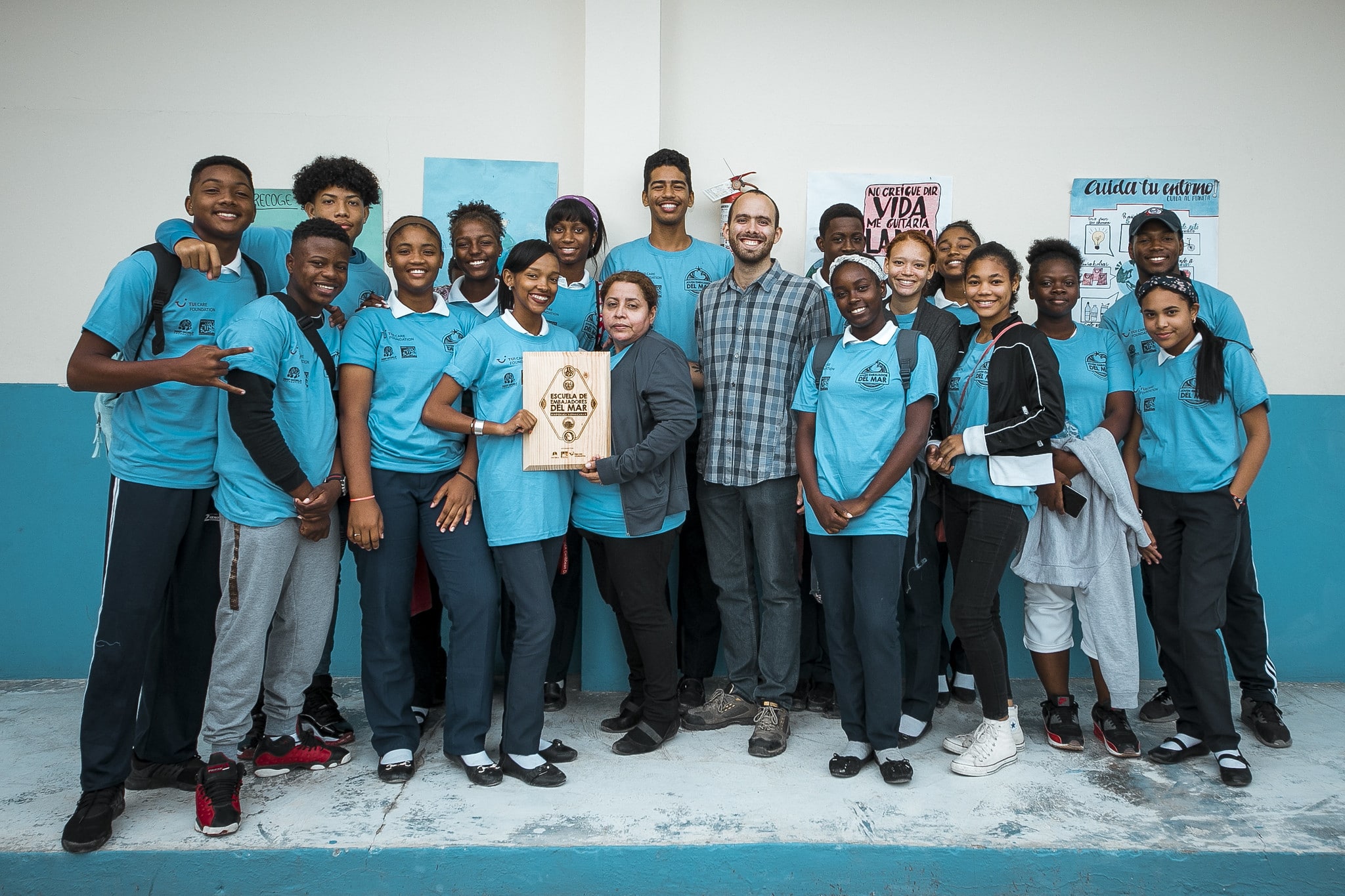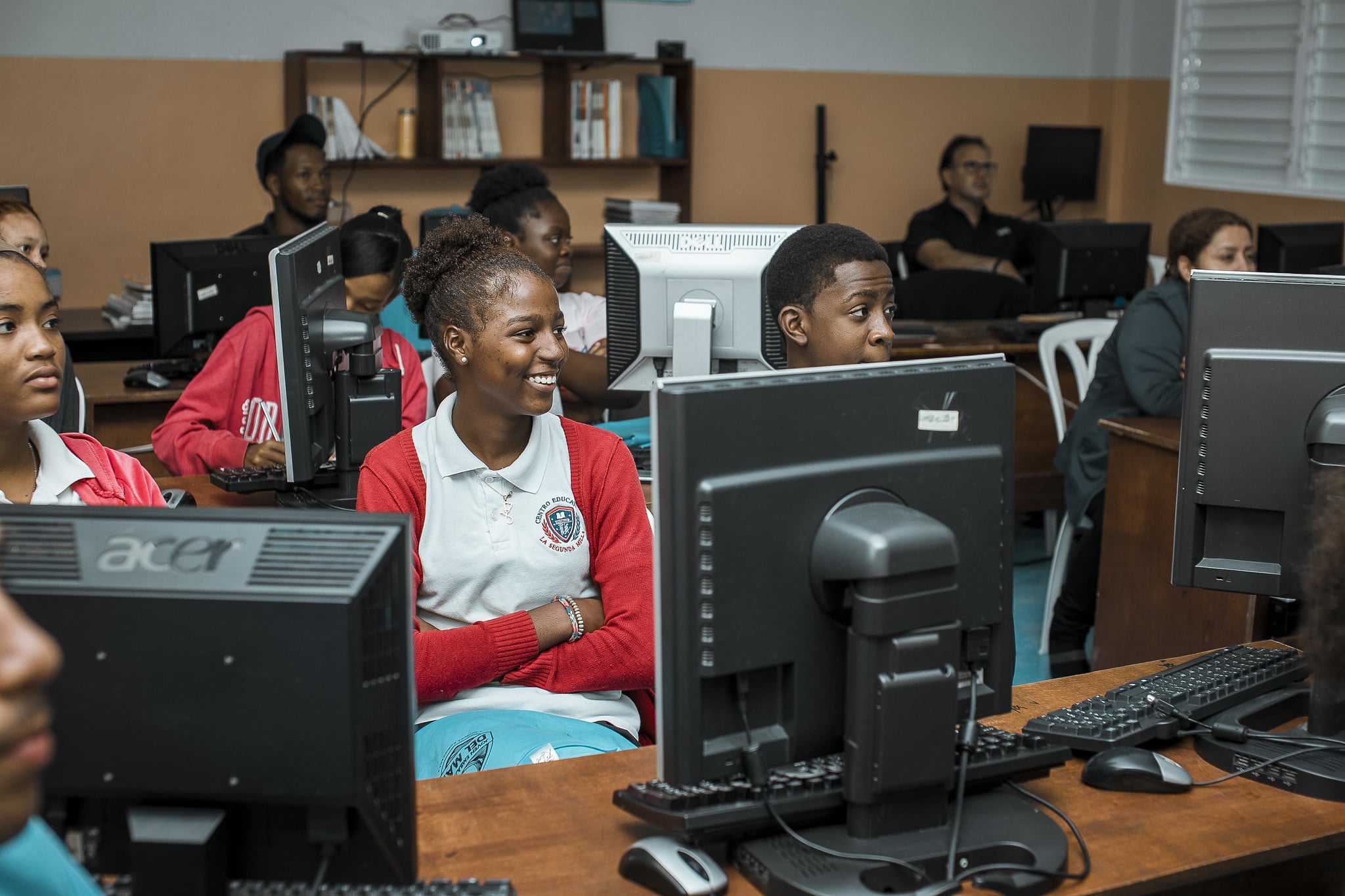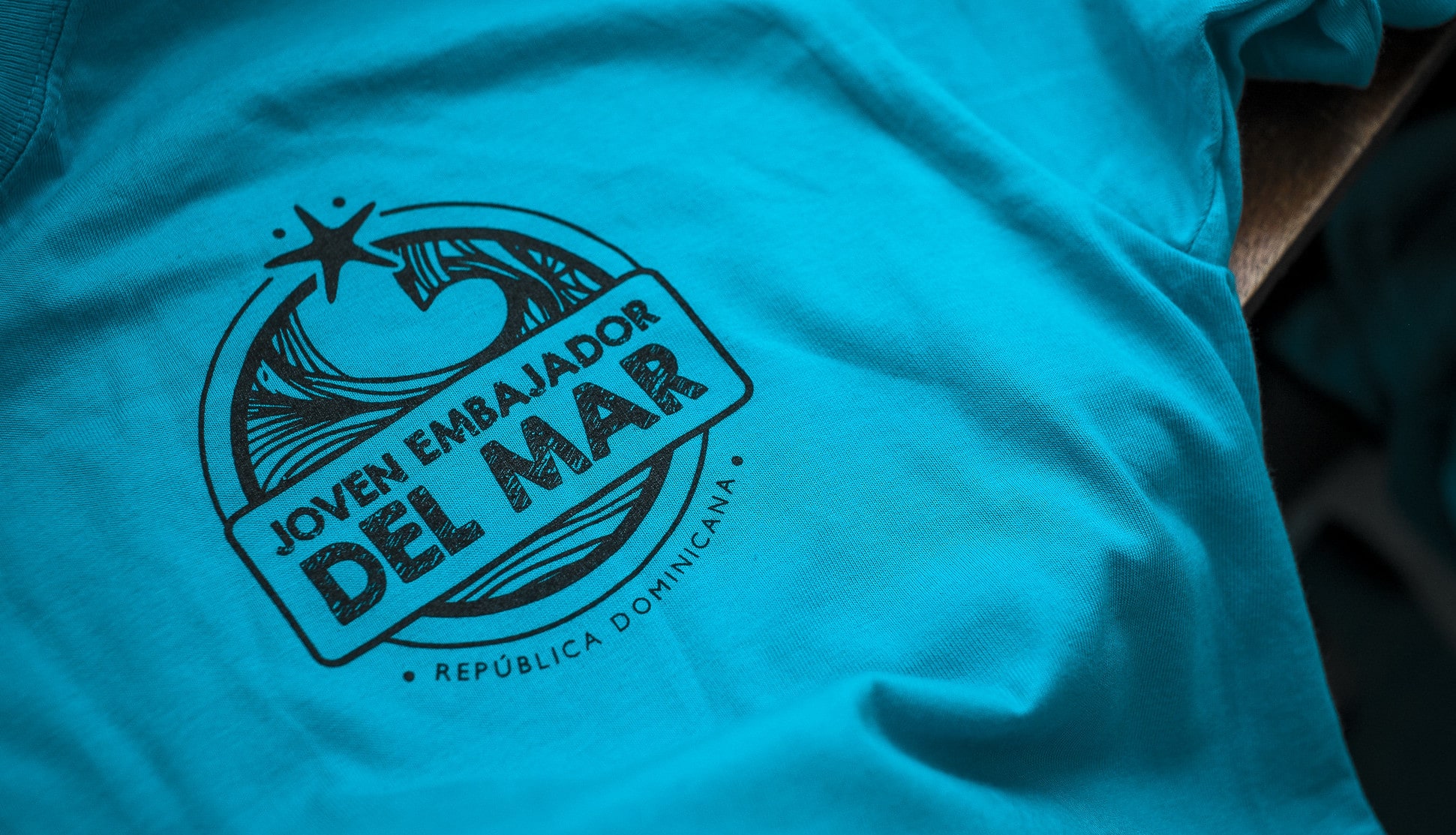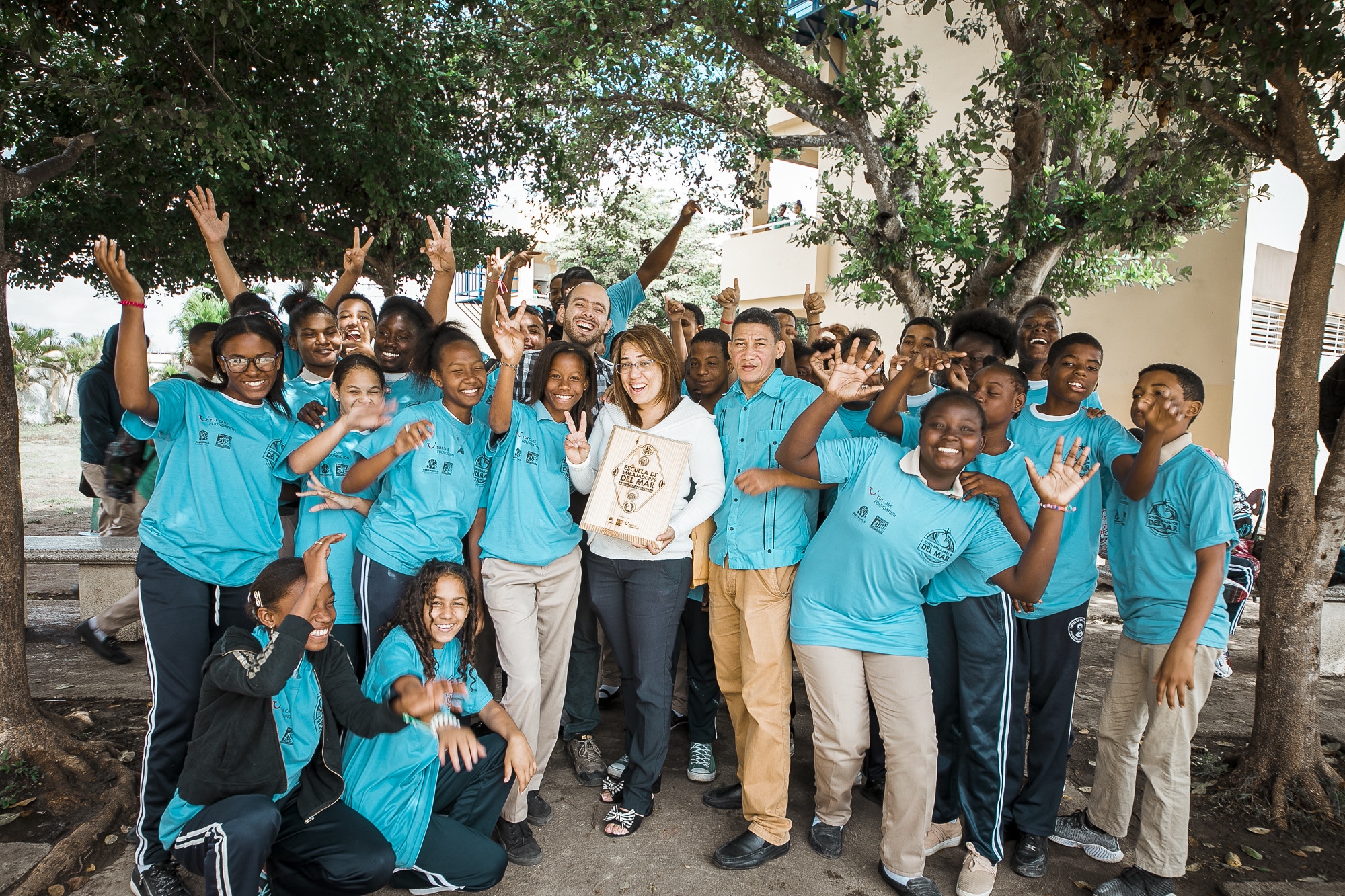Marine Life & Conservation
Pandemic causes a surge in interest in Green Fins Dominican Republic

Going digital is helping to boost the programme’s conservation impact
The Reef-World Foundation – international coordinator of the UN Environment Programme’s Green Fins initiative – and Reef Check Dominican Republic have adapted to the new situations caused by the pandemic in order to reach even more dive and snorkel operators with their conservation messaging.
The COVID-19 pandemic has caused major disruption for the global travel industry and resulted in environmental concerns; for example, through the increased use of single-use plastic items such as gloves and masks. However, for the Green Fins initiative in the Dominican Republic, the pandemic has also brought some positive conservation effects, such as coastal water quality improvements due to the drastic reduction on human activities.
Green Fins Dominican Republic receives a surge of interest
At the onset of the outbreak in March 2020, tourism activities came to an abrupt halt which meant all Green Fins activities and assessments had to be put on hold. Despite this, there was a surge in interest from dive centres in the Dominican Republic wanting to join Green Fins. Plans are underway to conduct training and assessments of these businesses once they are fully operational again.
Tourism businesses have been operating at around 30% capacity since July; however, with plans for many of the hotels and resorts to open even further for high season in November 2020, Green Fins assessments could be underway again by the end of the year. Moving the programme’s environmental awareness raising sessions from in-person to online has helped significantly increase the number of people reached: from dozens to hundreds.

Marine conservation lessons in the Dominican Republic
Government of Dominican Republic shows ongoing programme support
In August 2020, a new President (Mr. Luis Abinader) was elected and came into office and a new Minister of Environment and Natural Resources (Mr Orlando Jorge Mera) was appointed. There has been overwhelming support for the Green Fins initiative and the Youth Ambassador programme from the new officials. In addition, a new law in the Dominican Republic mandates the inclusion of environmental education in all levels of the national education curriculum; making the Green Fins content even more relevant.
TUI Junior Academy determined to continue providing conservation education for children
In January 2020, Reef-World and the TUI Care Foundation launched a new TUI Junior Academy to support environmental training and inspire a generation of Youth Ambassadors for coral reef conservation. A state of emergency was declared in Dominican Republic just months later (16 March 2020) with measures such as curfews, border closures and school cancellations being enforced for several weeks. As a result of these measures, planned delivery of the Youth Ambassador curriculum (including marine conservation lectures and field activities) for the Youth Ambassadors were put on hold immediately.
The Green Fins team has worked hard to adapt to the current situation and reach the children. Due to restrictions on large gatherings, in-person solutions – such as reaching the children through community groups and local churches – are no longer possible. Instead, projects that the children can be involved with in an independent manner – such as home plastic detective projects and making reusable masks and environmentally friendly soap – will replace the beach cleanups, workshops and community art projects that were originally due to take place.

Youth Ambassador’s T-shirt
In collaboration with the Direction of Education within the Ministry of Environment, the team started to deliver educational marine conservation content to children using digital platforms. However, many children currently do not have access to a computer, tablet or the internet which makes this solution challenging at present. The new government has pledged to help install internet access and provide children with access via computers and tablets which will help resolve this challenge and reach an even greater public.
The Education Department within the Ministry of Environment is keen to continue education for all school aged children in the Dominican Republic. As part of this, they have requested Reef Check and Reef-World partner with them to deliver the Green Fins curriculum to children across the country via webcam. Five daily 40-minute lessons about the marine environment are now being delivered for approximately 500 children.
Ruben E. Torres, Ph.D., Reef Check Dominican Republic, said: “Being forced to go online with our activities has helped us reach out to many more people than planned. We recently reached over 150 people in a single afternoon using Zoom® compared to a few dozen over a couple of weeks when we ran in person training sessions some months ago.”
JJ Harvey, Director at The Reef-World Foundation, said: “It’s great to see interest in Green Fins is stronger than ever in the Dominican Republic. It’s unknown exactly why we’ve seen such a surge in interest recently. However, with sustainability key to the travel industry bouncing back, we believe marine tourism operators are looking to gain a competitive edge by obtaining Green Fins environmental certification. Reef-World has noticed this trend globally – not just in the Dominican Republic – as businesses look to improve their chances of surviving a potential financial shortfall in the coming months and years. We’re delighted to see the programme continuing to have a tangible conservation impact despite current disruptions and we welcome enquiries from other interested dive and snorkel operators.”

Youth Ambassadors in the Dominican Republic
Orlando Jorge Mera, Minister of Environment and Natural Resources of the Dominican Republic, said: “Addressing the environmental issues such as the climate change and the pollution of our oceans, this administration’s agenda has environmental education as a priority. We want to imprint a legacy by educating future generations. We need to raise awareness as a society. It is not just about who occupies the Ministry of the Environment, it is a legal and moral commitment, this is everyone’s job. We thank the REEF World Foundation, Reef Check Dominican Republic, TUI Care Foundation and TUI Junior Academy for promoting environmentally friendly initiatives in favor of the Dominican Republic. Education can’t stop. Count on us!”
Green Fins Dominican Republic was established in June 2018 with support from the Regional Activity Centre for the Protocol on Specially Protected Areas and Wildlife (SPAW-RAC). The initiative is overseen and managed in the country by Reef Check Dominican Republic in collaboration with the Ministry of Environment and Natural Resources and the Auxiliary Navy. Further expansion is being supported through the TUI Care Foundation.
For more information, please visit www.greenfins.net
Marine Life & Conservation
Paul Watson Released as Denmark Blocks Japan’s Extradition Bid

Renowned anti-whaling activist Paul Watson has been released from custody in Greenland after spending five months in detention. Denmark’s Justice Ministry rejected Japan’s request for his extradition, citing insufficient guarantees that his time already served in custody would be credited against any potential sentence.
The 74-year-old Canadian-American was arrested on July 21 in Nuuk, Greenland’s capital, when his ship docked to refuel. His arrest was based on a 2012 Japanese warrant related to a 2010 encounter in Antarctic waters. Japan alleged Watson obstructed operations and caused damage to a whaling research ship during efforts to disrupt illegal whaling. Watson has consistently denied these claims, maintaining his commitment to marine conservation.
Denmark, which oversees extradition matters for Greenland, concluded that while the legal conditions for extradition were met, the lack of assurances from Japan regarding time-served credit made extradition untenable.
In a video shared by his foundation, Watson expressed gratitude and relief, saying, “After five months, it’s good to be out… and good to know they’re not sending me to Japan.” He added that the most difficult part of his time in custody was being separated from his two young sons.
Watson is a pioneering figure in marine conservation, known for founding the Captain Paul Watson Foundation in 2022 after decades of activism with the Sea Shepherd Conservation Society. His bold efforts to defend marine life have earned him widespread support, including from celebrities and conservationists. His work has also been featured in the acclaimed reality TV series Whale Wars.
Watson’s lawyer, Jonas Christoffersen, praised the decision, stating, “We are happy and relieved that Paul Watson is now free.” He added that Watson is eager to reunite with his family and continue his vital work.
The arrest occurred while Watson’s vessel, the M/Y John Paul DeJoria, was en route to the North Pacific with a team of 26 volunteers to intercept a Japanese whaling ship. His foundation described the arrest as politically motivated and emphasized that Watson’s actions were focused on ending illegal whaling practices.
Japan resumed commercial whaling in 2019 after leaving the International Whaling Commission, asserting that whale meat is a cultural tradition. Conservationists, however, continue to challenge these practices, highlighting their impact on marine ecosystems.
Despite the challenges, Watson remains steadfast in his mission to protect marine life and bring attention to whaling practices. His dedication to ocean conservation has made him a globally respected advocate for the environment.
Marine Life & Conservation
12 Days of Zero-Waste Fish-mas

This holiday period, the Marine Conservation Society, the UK’s leading ocean membership charity, invites you to make some simple changes to eating fish this Christmas to help our seas.
Dr Kenneth Bodles, Head of Fisheries and Aquaculture at the Marine Conservation Society, said, “During the festive season, our consumption increases, but so does waste. Sustainability isn’t just about where food comes from – it’s also about how you use it. By reducing waste and making the most out of your seafood, you’re not only taking steps to be more ocean-friendly, but can also help to cut costs during what is often one of the most expensive times of the year”.
The Marine Conservation Society has compiled twelve tips on how to consume seafood sustainably with zero-waste this Christmas:
Buy whole fish instead of fillets
Instead of fillets, consider buying whole fish such as salmon, hake, or lemon sole. By adopting a “nose to tail” approach with cooking, whole-baked fish not only feeds a crowd, but also helps to minimise waste and maximise sustainability by using up every part of the animal, including bones, skin, and fat.
Make fish stock
Leftover fish bones or shells can be put to good use by boiling them to make a nourishing fish stock or bisque. This can be frozen and preserved for later use and makes for a flavourful base in a soup.
Make your own fish pâté
Avoid waste by turning leftover fish, such as smoked mackerel or salmon, into a delicious pâté by blending with cream cheese and lemon. Perfect when paired with crackers.
The sustainability of salmon and mackerel varies depending on where and how it is caught or farmed. For more information on green-rated options, check the charity’s Good Fish Guide.
Buy frozen
By purchasing seafood that is frozen or vacuum-packed, this helps to reduce waste by extending the shelf life of your food.
Fish pie
If you’re wondering what to do with leftover cooked fish, why not opt for a classic fish pie with mashed potatoes, leeks, and a cheesy sauce? A sure crowd pleaser on Boxing Day.
Use the head
Don’t forget the fish head! The meat is incredibly tender and flavourful. The charity recommends a cod’s head curry or recreating Fallow’s renowned cod’s head in siracha butter.
By stretching your ingredients further, not only is this a more sustainable way to enjoy seafood, but also cost-effective by repurposing leftovers and cooking creatively.
Boxing Day brunch
Mix leftover kippers or smoked salmon with scrambled eggs for a tasty, zero-waste, Boxing Day brunch.
For best choice, make sure you buy kippers, or herring, from the North Sea and the North Irish Sea.
Zero-waste storage
A top tip from the Marine Conservation Society to avoid waste is freezing fish offcuts to save for future use.
Crisp up the skin
Even leftover fish skin can be turned into a quick savoury snack by crisping it up in an air fryer with a little olive oil and salt.
Anchovies two ways
Leftover anchovies can either be blended with butter to make a delicious anchovy butter or tossed into pasta for a hit of umami flavour.
The charity recommends opting for anchovies caught in the Bay of Biscay for best choice.
Fishcakes
For an easy, zero-waste meal, leftover seafood trimmings can be mixed with mash and fried in breadcrumbs to make fishcakes.
Pickled mussels
Try pickling mussels in 1:1 vinegar and water, with a dash of sugar for a sustainable, zero-waste snack that can be enjoyed well beyond the festive season.
Mussels farmed in the UK are a seafood superhero. Grown using low-impact methods and harvested by hand, they get all the food they need from the sea around them. This makes them one of the most sustainable, ocean-friendly, and cost-effective seafood options.
Players of People’s Postcode Lottery have raised £6.6M towards the Marine Conservation Society’s vital work in making seafood more sustainable.
Laura Chow, Head of Charities at People’s Postcode Lottery, said: “Fish is a festive favourite for many, but making sustainable choices when it comes to how we buy and eat seafood makes all the difference for our ocean. Support from players of People’s Postcode Lottery has helped the Marine Conservation Society further its sustainable seafood work, so that we can all enjoy healthier, better protected seas.”
The Marine Conservation Society encourages you to make sustainable seafood choices a year-round habit, not just for Christmas. To check how sustainable the seafood on your plate is, you can visit the charity’s Good Fish Guide. The Guide helps consumers and businesses identify the most sustainable seafood using a simple traffic light system, based on where and how species are caught or farmed. Green is the best choice, amber means improvements are needed, and red indicates fish to avoid buying.
Zero-waste gift idea
Why not embrace a zero-waste Christmas by gifting a membership to support marine conservation? It’s a meaningful, low-waste gift that helps protect our ocean for generations to come. Memberships start from as little as £5 a month – the price of a sandwich and drink from your local coffee shop.
Find the latest sustainable seafood advice for wild-caught and farmed seafood on the Good Fish Guide, downloadable to your phone from www.mcsuk.org/goodfishguide.
-

 News2 months ago
News2 months agoIconic SS United States to become the World’s Largest Artificial Reef
-

 News3 months ago
News3 months agoBook Review – 52 Assignments: Underwater Photography
-

 Gear News3 months ago
Gear News3 months agoDYNAMICNORD – New German diving brand enters the British market
-

 News3 months ago
News3 months agoExploring Cenote El Pit: A Diver’s Dream
-

 Gear News3 months ago
Gear News3 months agoTry BARE drysuits (and maybe even win one!) this Friday with Sea & Sea at North West Dive Fest
-

 Marine Life & Conservation3 months ago
Marine Life & Conservation3 months agoBook Review: Coral Triangle Cameos
-

 Blogs2 months ago
Blogs2 months agoDive the Egyptian Red Sea this Autumn with Regaldive
-

 News3 months ago
News3 months ago2024 Ocean Art Underwater Photo Competition Announced















